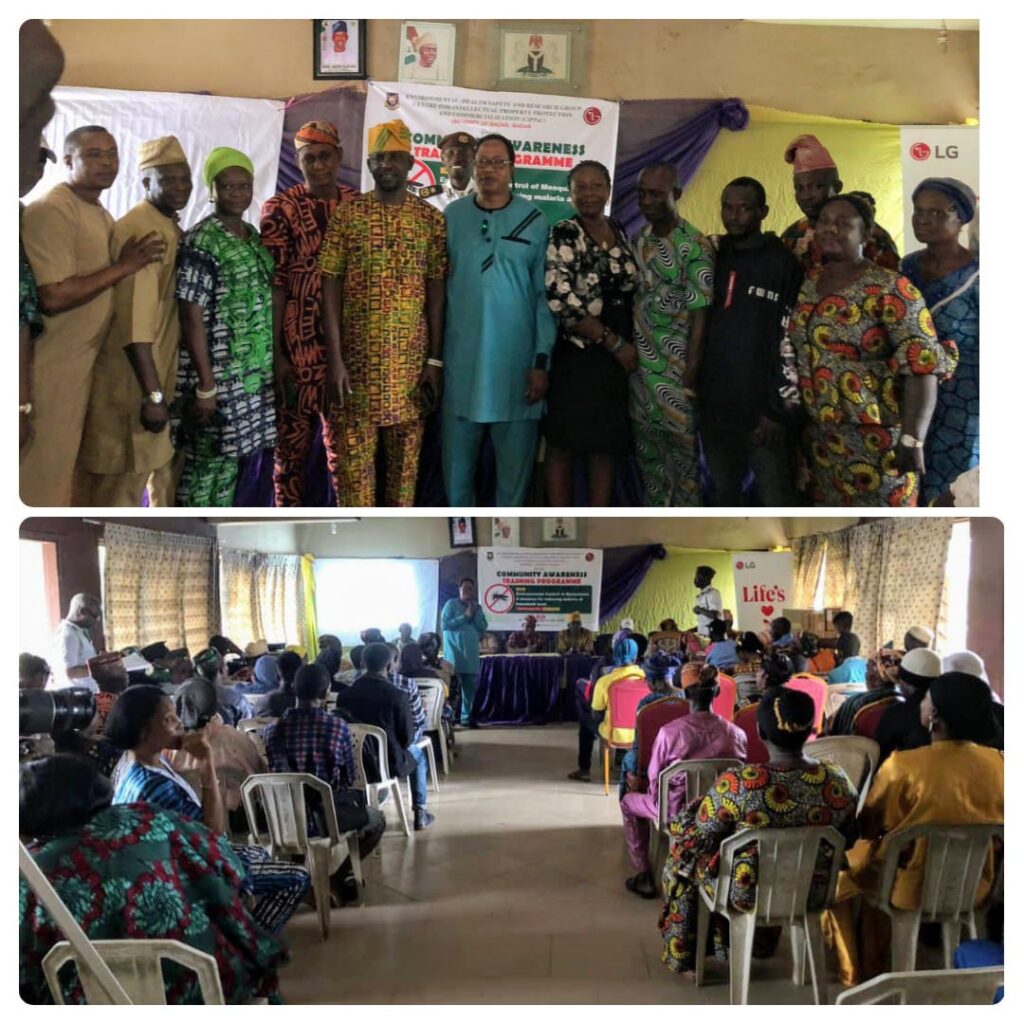
The Executive Chairman of Oluyole local government, Engr. Akeem Olatunji, LG Electronics, and Professor Oladapo Okareh of Environmental Health, Department of Environmental Health Sciences, College of Medicine University of Ibadan, have collaborated to raise grassroots sensitization and awareness on Malaria prevention.
The collaboration according to the Council Chairman aims to address the persistent malaria challenges in Oluyole Local Government Area.
Olatunji also disclosed that Professor Okareh, renowned for his expertise in public health and disease management, led the initiative at a One Day Training and Sensitization program to bring advanced solutions to the grassroots which he noted is the most malaria-affected part of the society.
Speaking at the training workshop held on August 23rd, at the Local Government Secretariat, Idi-Ayunre, Ibadan, Olatunji, who lauded the partnership to fight malaria described it as strategic, timely, and a major leap forward in the effort to combat malaria in Oluyole.
He noted that the training also aims to educate residents of Oluyole on preventive measures to reduce risks, effective response, environmental hygiene, and general healthy living to reduce the spread of malaria in the Council Area.
Speaking with newsmen shortly after the event, Olatunji said: “Partnering with LG Electronics represents a major leap forward in our efforts to combat malaria. Their technological innovations will play a crucial role in enhancing our disease control strategies.
“LG Electronics is renowned for using its technological prowess to combat malaria via integrating smart solutions to health and environmental challenges such as advanced mosquito repellents, environmental monitoring systems, and data analytics tools.
“This initiative also includes educational campaigns and community outreach programs designed to raise awareness about malaria prevention and encourage local involvement in line with Governor Seyi Makinde’s vision for inclusive governance.
” I believe that by combining technology with community engagement, the training workshop seeks to create a comprehensive approach to tackling malaria at the grassroots as you all can see. So, we remain committed to ensuring that our people are healthy and also practice hygienic lifestyle to continue to enjoy the good governance in Oluyole.”
Earlier in his lecture, Professor Okareh highlighted the risks associated with malaria and the danger an unhealthy environment portends to people living in such community, and called for more cooperation with Environmental Health Officials on house and community inspections.
He explained how malaria has led to the death of many and still continues to cause deaths globally, and called on participants to imbibe the culture of healthy living, maintaining a hygienic lifestyle by keeping their environment clean at all times.
While lamenting the literacy level on malaria prevention awareness especially at the grassroots, hehcalled for a collective action against malaria stressing that ignorance could be costly.
“Our environment is our collective responsibility, if we didn’t need anymore to tell us to wash our clothes when they’re not dirty before we do so, then we must take responsibility for our environment to repel mosquitoes from causing us harm.” Professor Okareh said.
Favor Umana, representative of LG Electronics, who presented a mosquito repellant Air Conditioner to Olatunji as a show of support for his office, highlighted supportive efforts of the company in combating malaria globally.
He disclosed that the company chose Oluyole local government for partnership on the fight against malaria because of the people-centered governance in the Council under the leadership of Engr. Akeem Olatunji and the direct impact of his administration on grassroots development since assumption of office.
Present at the event were the HLGA, Alhaja Qudrah Abidemi Noibi, Chief of Staff Hon. Azeez Babalola, Leader of Oluyole Legislative House, Hon. Taofeek Azeez, all 10 Ward Councillors, Supervisors, and Special Assistants among others.
Also present are some students of the Department of Environmental Sciences, University of Ibadan and others.
